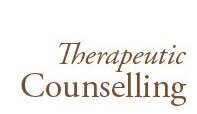“Until you make the unconscious conscious, it will direct your life and you will call it fate”.
Carl Jung
Photo by Burst from Pexels
Depression
You needn’t feel alone. Counselling offers a safe space to reconcile issues that at the moment may feel insurmountable.
• Symptoms vary: loss of interest and enjoyment, reduced energy and suicide ideation.
• May cause anxiety symptoms: disturbed sleep and appetite, feelings of guilt, low self-worth, poor concentration. And potentially self-medicating behaviours (alcohol/drugs).
Talking therapy alongside CBT can benefit a person struggling with depression, however, when ‘taking part in life’ is too difficult your GP may prescribe anti-depressants to enable the recovery process.
Depression and isolation.
Isolation, feeling alone, no longer in control and misunderstood. Being able to cope with negative life events like bereavement, financial crisis (unemployment), not achieving a long sort after goal are natural causes of low mood. A person’s ability to recover from the inevitable natural rollercoaster of high and low mood dictates their mental health. Perception is everything. They may have a predisposition towards depression. You might know someone who seems quite content with their and others’ misfortunes, it may their comfortable condition. For others, depression may be a response to personal circumstances, which may or may not be out of their control for example: anger, relationship issues, bereavement, redundancy, infertility or a serious illness.
Depression can be a biological response to distress. Serotonin levels are an indicator of mental health. There is an on-going debate whether susceptibility to depression is caused by previous low serotonin levels or whether depression reduces serotonin (Datta, 2010).
According to the World Health Organisation (WHO, 2020) “Depression is a common mental disorder. Globally, more than 264 million people of all ages suffer from depression”. They also say more women are affected by depression than men. And that there are “effective psychological and pharmacological treatments” for moderate and severe depression: using a combined approach of talking therapies, medications and social interventions that take into account socio-economic factors.
A person experiencing a depressed mood, experiences a loss of interest and enjoyment, and reduced energy leading to diminished activity - in severe cases suicide ideation. People with depression may also suffer anxiety symptoms, disturbed sleep and appetite, and have feelings of guilt or low self-worth, poor concentration and even physical symptoms that cannot be explained by a medical diagnosis. They can also resort to self-medication to fight depression or their depression is a response to their ‘trapped’ circumstances with addiction (alcohol and drugs) as a conditioned response. Chronic (i.e. over an extended period) or recurrent (repeated depressive episodes) can become a debilitating health condition.
The NHS (2020) describes treatment for depression as a “combination of self-help, talking therapies and medicines”. For Mild depression, simply wait and see (GP monitored over a short time period). Mild depression is proven to benefit from social/exercise activities, something you enjoy and are willingly do regularly like gardening, (dog) walking, volunteering, group social activities like low-impact sports and interest groups (even as an observer), especially for those disinclined towards exercise and socialisation and more prone to low mood. Local self-help groups or books. Mental health apps NHS Apps library.
Both NHS (2020) and NICE guidelines suggest talking therapies like counselling might be helpful for mild to moderate depression. Your GP can help medically when psychosocial and environmental causes are inescapable, when personal difficulties persist like long-term unemployment, difficult housing conditions, family demands or social isolation. While talking therapy alongside goal orientated therapy can benefit a person struggling with depression, your GP may prescribe anti-depressants (Selective Serotonin Reuptake Inhibitors SSRIs) for moderate to severe depression as a means to enable or support the recovery process - when ‘taking part in life’ - is too problematic, and a combination of therapy enables access to other therapeutic opportunities.
Anti-depressants mimic natural substances in the brain’s activity increasing the production of neurotransmitter/hormones like Serotonin (known to alter mood). The diagnoses are always made by a medical professional i.e. a psychiatrist or GP. It is not a counsellor’s role to diagnose symptoms. The therapist responds to whatever issues are presented and responds through a process of listening and reflection with a non-directive approach. Their aim is to support a clients’ reversal of negative dysfunctional emotional and physical behaviours. While CBT techniques are more directional and require a commitment from the client to participate in the ‘homework/guided activities’ in order to resolve targeted maladjusted behaviours, both cognitive and physical.
if you are currently struggling with low mood or depression and are seeking counselling support, please contact me to book an appointment or for further details.
If you are in distress and require immediate psychological support contact the Samaritans free from any phone 116 123.

